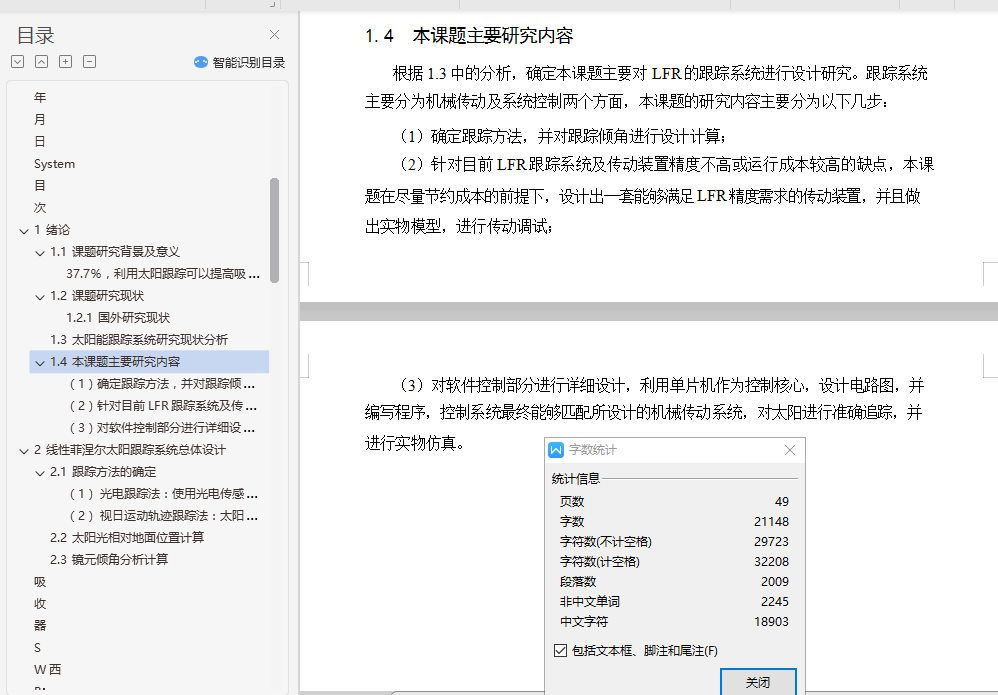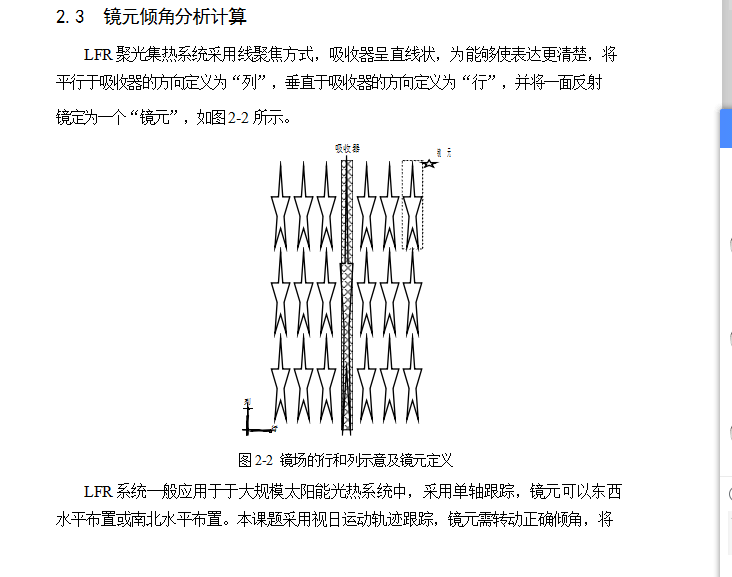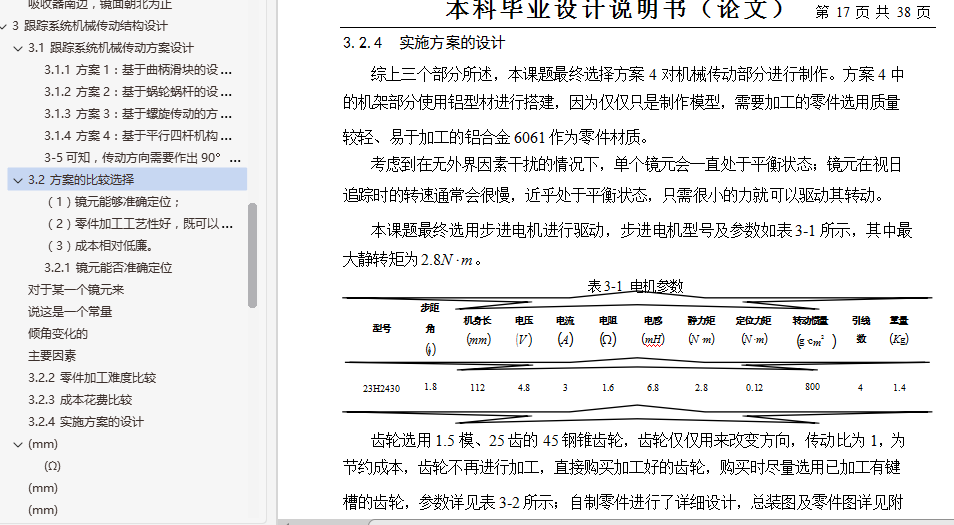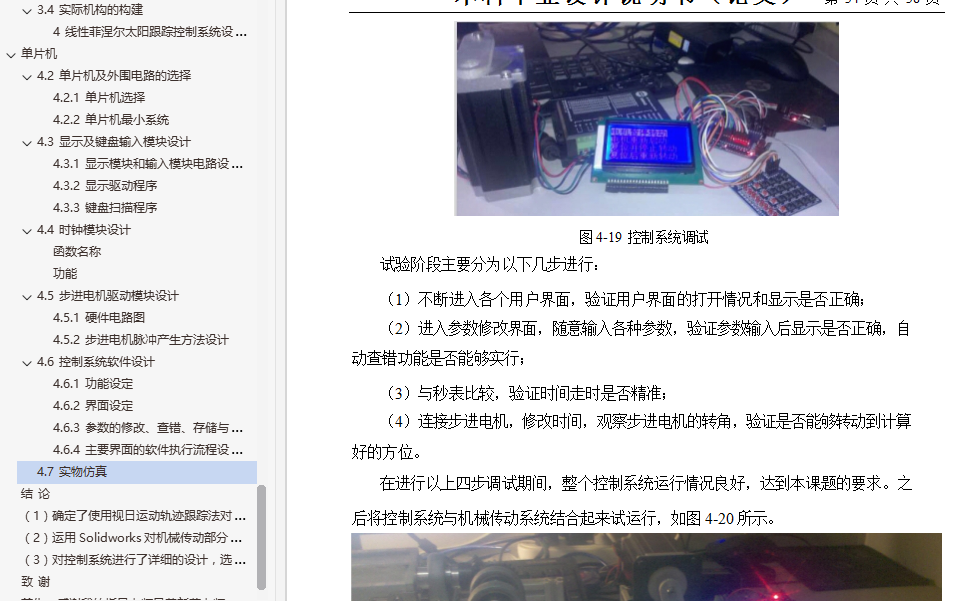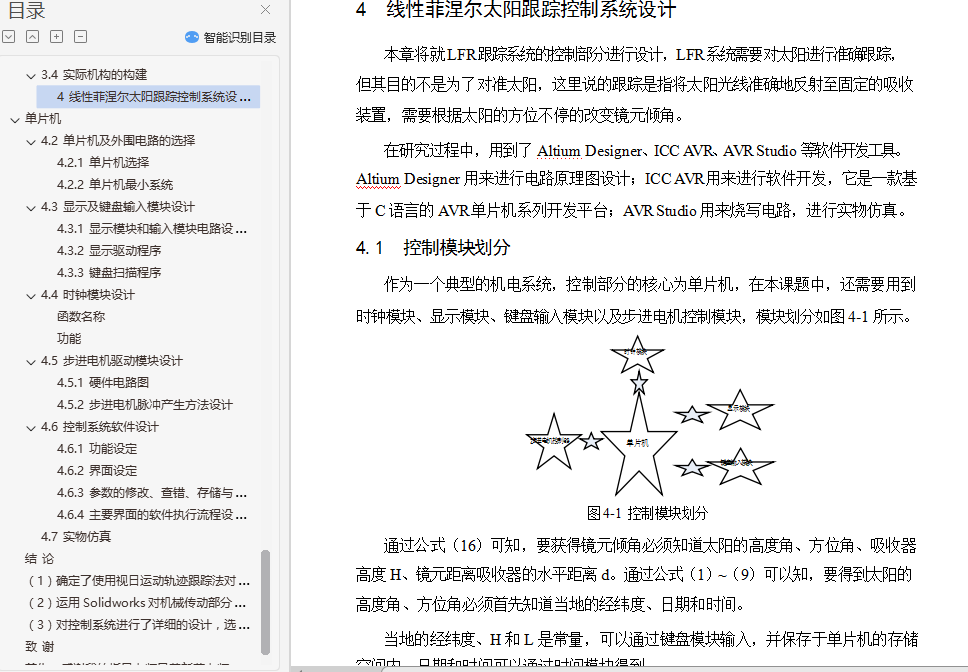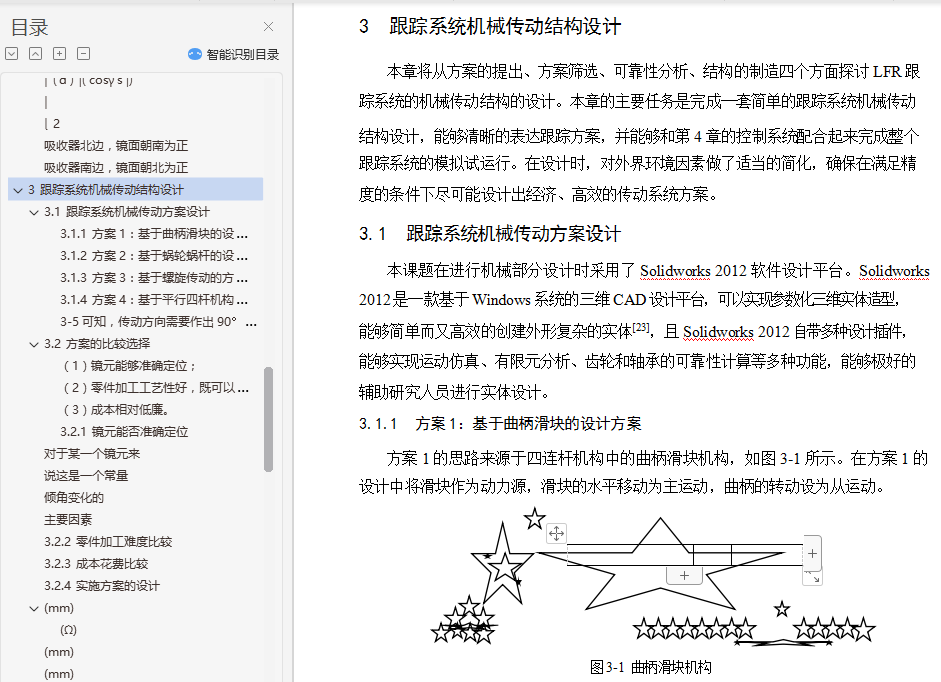毕业设计说明书(论文)中文摘要
太阳能是一种具有开发潜能的新兴能源。随着常规化石能源的逐渐枯竭以及
温室效应的加剧,太阳能正在逐渐成为人类理想的替代能源。目前太阳能利用率
普遍不高,分析表明,太阳追踪技术可以显著提高能量接收率,是提高太阳能利
用 率 的 主 要 手 段 之 一 。 本 课 题 主 要 对 线 性 菲 涅 尔 反 射 式 ( Linear Fresnel
Reflector,简称 LFR)太阳能集热追踪系统进行研究。本课题根据 LFR 系统的特
点,使用三维设计软件对机械传动系统进行结构设计。以 Atmega128 为控制核心
完成了控制电路的设计,并编写了相应的软件程序。最终完成了系统的安装和调
试,实现了对太阳光线跟踪的目标。
关键词:太阳能;线性菲涅尔反射;跟踪系统;单片机控制
毕业设计说明书(论文)外文摘要
Title The Design of Linear Fresnel Reflector Solar Tracking
System
Abstract
Solar energy is a kind of new energy with great development potential.With
the fossil energy exhausting and the greenhouse effect intensifying,solar
energy has been an ideal alternative energy source.Current solar
utilization is not efficient.Proved by theory analysis,that the rate of
the energy receiving can be increased by adopting the solar tracking
technology.The linear Fresnel reflector(referred to as the LFR)solar
tracking system is mainly researched by this study.In this study,the 3-D
software is used to design the machine driven system.To meet the requirement
of the control system,Atmega128 is chosen as the CPU.The control circuits
and relevant software programs are designed.Mechanical installation was
completed and the system was debugged in this study.The goal of solar
tracking is achieved in the end.
Keywords solar energy
liner Fresnel reflector
tracking system
SCM
本科毕业设计说明书(论文)
第 I 页 共 I 页
1 绪论................................................................................................................................... 1
1.1 课题研究背景及意义................................................................................................... 1
1.2 课题研究现状............................................................................................................... 3
1.3 太阳能跟踪系统研究现状分析................................................................................... 4
1.4 本课题主要研究内容................................................................................................... 5
2 线性菲涅尔太阳跟踪系统总体设计............................................................................... 6
2.1 跟踪方法的确定........................................................................................................... 6
2.2 太阳光相对地面位置计算........................................................................................... 6
2.3 镜元倾角分析计算....................................................................................................... 8
3 跟踪系统机械传动结构设计......................................................................................... 12
3.1 跟踪系统机械传动方案设计..................................................................................... 12
3.2 方案的比较选择......................................................................................................... 15
3.3 可靠性分析................................................................................................................. 17
3.4 实际机构的构建......................................................................................................... 20
4 线性菲涅尔太阳跟踪控制系统设计............................................................................. 21
4.1 控制模块划分............................................................................................................. 21
4.2 单片机及外围电路的选择......................................................................................... 21
4.3 显示及键盘输入模块设计......................................................................................... 24
4.4 时钟模块设计............................................................................................................. 27
4.5 步进电机驱动模块设计............................................................................................. 27
4.6 控制系统软件设计..................................................................................................... 29
4.7 实物仿真..................................................................................................................... 33
结 论................................................................................................................................... 35
致 谢................................................................................................................................... 36
参 考 文 献......................................................................................................................... 37
